2022-3-28
Tina Xie /photo courtesy of Taiwan FactCheck Center /tr. by David Mayer
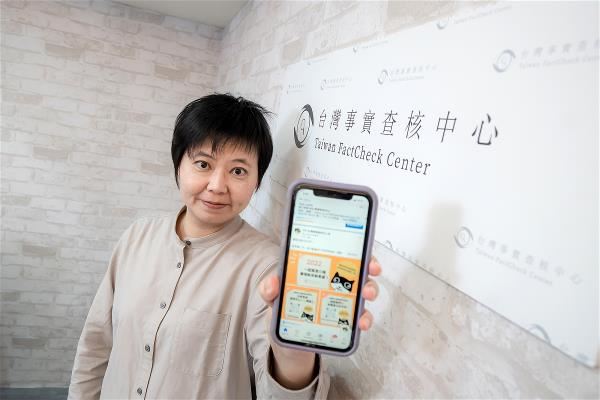
T he Internet is rife with misinformation in the form of text, videos, and images. Indeed, falsehoods are far more abundant than truth. In the past, fact checkers were on their own, and just used their own common sense to categorize suspect items and decide which to look into first.
Fortunately, Taiwan’s Institute for Information Industry, after studying the fact checking procedures of the Taiwan FactCheck Center, has greatly improved fact checking efficiency by developing a collaborative mechanism for debunking misinformation, enabled by AI forensics technology. This represents a huge breakthrough in the field of fact checking, which is why in 2021 the institute won an R&D 100 Award as well as bronze-level Special Recognition in the category of Corporate Social Responsibility at the R&D 100 Conference and Awards in the US.
On May 15, 2021, the Taipei City Government raised the city’s Covid-19 alert to Level 3, which meant that everyone was required to wear a face mask at all times when away from home. Rumors quickly began to fly. The very next day, the Taiwan FactCheck Center published a list of the top ten Covid-19 hoaxes, to mitigate their impact. There was more than one factor behind the TFC’s ability to act so fast. Besides the hard work of its staff, technologies developed by the Institute for Information Industry were also extremely helpful.
Pushing back against misinformation
Covid-19 misinformation has spread like a virus during the pandemic, causing alarm, sowing misunderstanding, and distorting societal discussion.
The artificial intelligence (AI) forensics technology was developed by a team led by Dr. Chen Ping-i of the Institute for Information Industry’s Digital Service Innovation Institute (DSI), who realized that misinformation has various hooks that trick people into believing it’s really important and has to be passed on. Such hooks might include exaggerated photos, for example, or quotes from supposed experts. To combat such trickery, the DSI uses AI to enable robots to learn the hooks and modes of expression typically found in misinformation. By flagging problematic items, AI forensics can help the fact checkers at the TFC home in on information that is likely to be misleading.
Chen’s team has also developed a filter technology that greatly simplifies the TFC’s work. The filters categorize the misinformation in the TFC database, enabling fact checkers to find content matching the topics they want to investigate at the press of a button.
In addition, Dr. Chang Wen-tsung, director of the Institute for Information Industry’s Cybersecurity Technology Institute (CSTI), leads a team that analyzes the pathways by which misinformation is spread, identifies specific accounts used for this purpose, and analyzes how those accounts are interrelated. The team then informs the appropriate organizations of its findings for them to take action and nip misinformation in the bud.
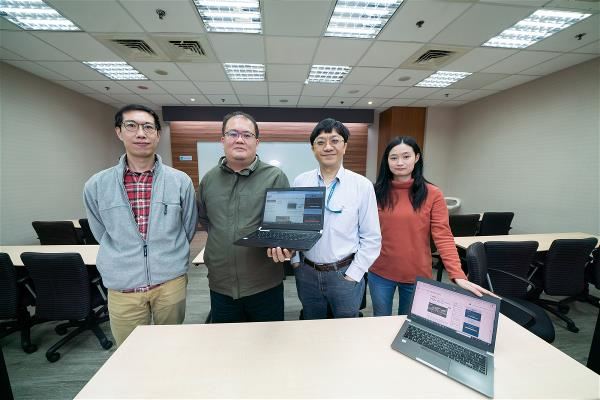
Sharing with overseas counterparts
Chang notes that there are already some overseas startups that specialize in identifying fake photos. For example, he says, “some people doctor photos to make fraudulent insurance claims, so insurers need tools to spot fakes.” There are defined principles for the proper response to misinformation, but technologies in the field are still immature. That is why, when the DSI developed its award-winning AI-enabled debunking mechanism, firms from Europe came knocking to inquire about the possibility of collaboration. Chen Ping-i chuckles: “They were amazed at how advanced our debunking technologies are in Taiwan!”
In addition to technologies, Taiwan is also an important country for the investigation of Chinese-language misinformation. In the early days of the Covid-19 pandemic, the TFC’s editor in chief Summer Chen could tell something was off when she learned of Covid-19 cases on China’s periphery and also heard that the city of Wuhan was in lockdown. Having been through SARS, and with lots of experience covering news on both sides of the Taiwan Strait, she knew to immediately contact Cristina Tardáguila (then associate director of the International Fact-Checking Network, IFCN) and suggest the launch of a worldwide fact checking project focusing specifically on Covid-19. This led to the launch of the CoronaVirusFacts Alliance.
Chen explains: “The Taiwan FactCheck Center at that time was receiving lots of requests from other countries for assistance in investigating misinformation circulating within their Chinese-speaking communities. Also, when anyone overseas wants to research China’s cognitive warfare, they will look to our reports for clues.” Through its cooperation with the Institute for Information Industry, she adds, the newly established TFC has gained opportunities to learn from top fact checkers throughout the world, and has won a solid position for itself in the international fact checking community.
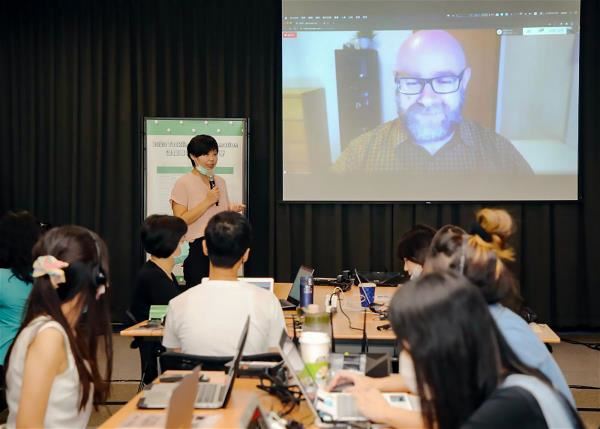
Toward stronger fact checking in Asia
Although it was only established in 2018, the TFC has nevertheless received recognition from the International Fact-Checking Network three years running for the quantity and quality of its reporting. The IFCN has certified the TFC as compliant with the IFCN Code of Principles, which is why the TFC is able to work with Facebook, supplying the latter with fact checking reports which help reduce instances of Facebook users clicking into misinformation posts.
In addition to Facebook, people in Taiwan are big users of the messaging app Line, so the TFC also works with Line. When someone comes across information on Line that they regard as suspect, they can plug the text into Line’s fact checking tool to get a quick indication as to whether the information is reliable. The TFC is the first fact checking organization that Line has worked with.
With the experience Taiwan has accumulated in the field of fact checking, we are in position to share what we’ve learned with other Asian nations that are more recent arrivals to the field, such as Malaysia, Singapore, Japan, and Mongolia.
When ballots were being counted on the evening of the 2020 Taiwan presidential election, the TFC published a fact check article entitled “[False claim] Online video claims votes cast for Candidate #2 were improperly awarded to Tsai Ing-wen.” This debunking was named Best Correction Achieved at the IFCN's 2020 Global Fact Awards. The TFC investigation showed that ballot callers at a polling station were calling ballots for presidential and legislative candidates at the same time, which is why it was possible for the sound of a ballot caller indicating “one vote for Candidate #2” to be followed by a scene in which a ballot tallier marked up a vote for Tsai Ing-wen, who was Candidate #1 in the presidential race. In fact, ballot callers had been calling legislative candidates by number, and presidential candidates by name. At the time, the TFC learned of the claim via a tip from the public, which shows that the people of Taiwan are working together to fight misinformation.
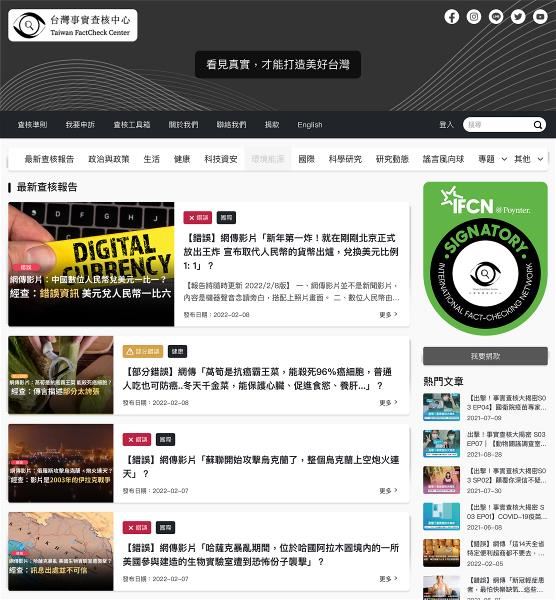
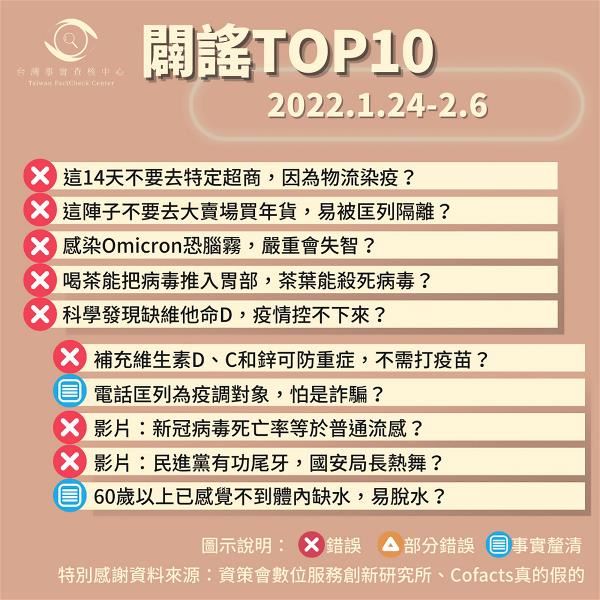
Developing fact-checking savvy
“People spread misinformation much faster than we can check the facts,” admits Summer Chen, who adds that media literacy education is extremely important. The TFC each year organizes three media literacy workshops, where over half the participants are teachers from elementary through university levels. The TFC has made a point of adjusting its teaching materials so that teachers can take what they learn directly back to their classrooms.
The Institute for Information Industry, which has long engaged in social analytics, is very concerned about the impact of the Internet and media commentators on the general public. This prompted the institute to develop “Check it Out,” an online Google app that is a simplified version of the AI forensics technology used by the TFC. After downloading it, a person need only paste a swatch of suspicious text into the app, which will quickly rate the risk of the text being misinformation.
The TFC also introduces all kinds of fact checking tricks on its own website as well as on Facebook and Instagram. The idea is that people shouldn’t just be passive recipients of information, but should become active researchers. They should get into the habit of checking out anything that looks suspect, and avoid passing it on. “Taiwan’s fact checking community is very active internationally,” says Summer Chen. In addition to the TFC, there is also a Line chat robot called Aunt Meiyu, a chatbot called Dr. Message, the Line Fact Checker, and Cofacts, an open-source fact-checking database that relies on crowdsourced tips.
Speaking at the 2021 Denver Democracy Summit, Taiwan’s digital minister, Audrey Tang, stated that the infodemic can be countered “with no takedown,” and that democracy is practiced in coordination with the people. The Taiwan model of fighting disinformation, she said, relies on ordinary people taking matters into their own hands, using everyday language to explain issues. This is similar to the thinking of Maria Ressa, joint winner of the 2021 Nobel Peace Prize and a co-founder of Rappler, a Philippine online news website: “Without facts, you can’t have the truth. Without truth, you can’t have trust. If you don’t have any of these things, you can’t have a functioning democracy, much less try to solve the complex problems we’re dealing with today in the world.”
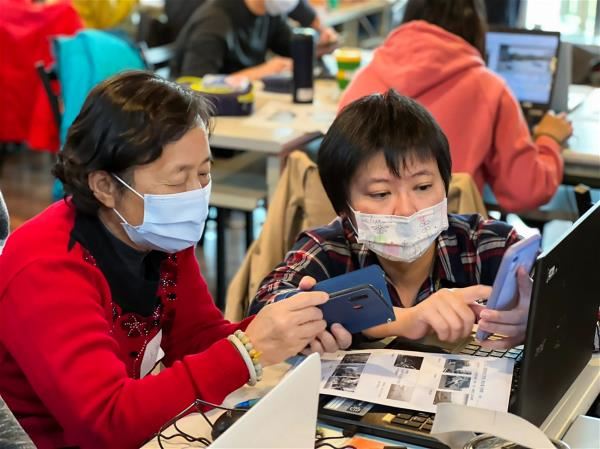
Article and photos courtesy of Taiwan Panorama March 2022





